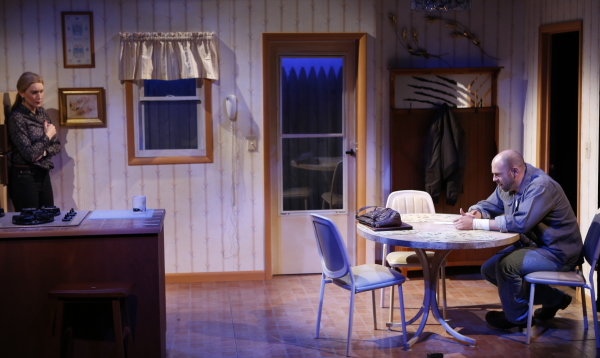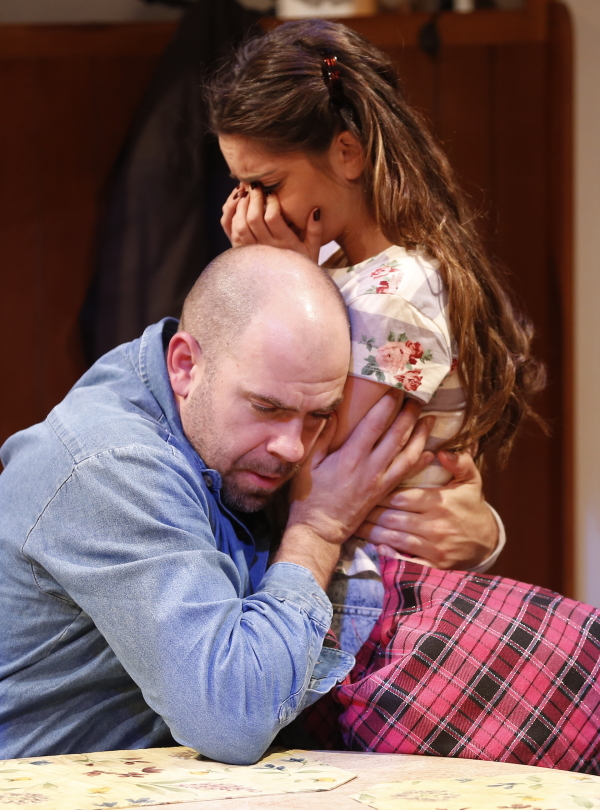On a Stool at the End of the Bar

(© Carol Rosegg)
Lies often manage to claw their way into the light, and when the truth reveals loved ones as they really are, a familiar face can become the face of a stranger. That's the experience of Tony DeMarco (Timothy John Smith), the working-class father who discovers a life-shattering secret about the woman he adores in Robert Callely's On a Stool at the End of the Bar, now running at 59E59 Theaters. Though this production's fine performances are at times muted by Michael Parva's too timid direction, the play features an unconventional type of betrayal that makes for an engaging two hours and strikes a chord with its distinctly modern theme.

(© Carol Rosegg)
What that theme is, exactly, can't be revealed without spoiling the whole show. Suffice it to say the play takes place during the late 1980s in a modest, working-class New Jersey home (Jessica L. Parks designed the aptly detailed set). Ten years earlier, widowed father Tony met Christine McCullough (Antoinette Thornes) when she happened to sit on his stool at the end of a bar. They fell in love, and Christine soon became a loving surrogate mother to Tony's three children, Joey (Luke Slattery), Angie (Sara Kapner), and Mario (Zachary Brod). They live together as a typical, happy family until Christine's father dies and her brother, Michael (John Stanisci), shows up unexpectedly to settle the estate with her. While Michael is alone with Tony, who never even knew that Christine had a brother, Michael unwittingly divulges a devastating secret that upends Tony's understanding of Christine as well as of himself, and sends the entire DeMarco family into a tailspin.
Smith does a remarkable job of portraying a man who in a matter of seconds has had his world yanked out from under him. His scene with Robert Hogan (who humorously plays a priest obviously in over his head with Tony's problem) poignantly delves into Tony's confusion about his own hidden past. And in a blistering encounter with Christine, Smith convincingly shuttles his character between violent rage at having been deceived and tender love for the woman he no longer knows. For her part, Thornes creates a character whom we at once sympathize with because of her dilemma and dislike because of her dishonesty. Liza Vann eloquently plays the therapist Dr. Johns, who tells Christine that the truth, hard as it may be to face, is the only way to heal the pain she's caused.
At times director Michael Parva seems to leave his actors to their own devices, resulting in listless dialogues, such as Christine's meeting with her brother, that hang limply between the stronger scenes. Their conversation, which includes more startling revelations about Christine's past life and her relationship with their father, feels static and devoid of the intensity that you'd expect such astonishing disclosures to generate.
Despite a couple of speed bumps like this, On a Stool at the End of the Bar offers a unique story that many theatergoers are likely to find engaging and provocative. The production's three youngest cast members also deserve a nod for their small but memorable performances. Callely's play does not provide answers regarding where this troubled family will eventually end up, but it does suggest that even in the most difficult, unthinkable circumstances, there is the possibility of forgiveness, understanding, and hope.











